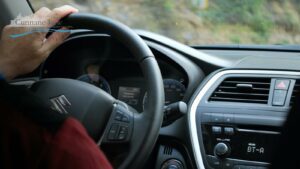Your Guide to Car Accident Police Reports in Washington
You could be entitled to bring a car accident claim against the other motorist to seek damages if you were hurt in a car accident that was their fault. You may need to know how to obtain a police record from an automobile accident as part of this procedure. You must be able to establish liability to make an automobile accident claim.
This implies, among other things:
- Interviewing witnesses is necessary before they forget what happened
- Photographs must be taken before injuries heal and damage is fixed
- Evidence must be gathered before it is gone
To put it another way, you must gather and save the proof necessary to establish that the other motorist (and their auto insurance provider) is responsible for paying for your damages, including your physical injury and monetary losses. To support your vehicle accident claim, a police record is crucial.
Almost all the information you need to submit a car accident claim is contained in your car accident police report, which is the official record of your collision.
A Police Car Accident Report

The car accident police report is one of the most important components of any potential legal claim.
If the police are called to your car accident, they will often file a car accident police report at the scene, particularly if a person is killed, suffers a physical injury, or if there is severe property damage.
It is crucial that you have a proficient automobile accident lawyer review the police report as quickly as possible if one was filed in your case. Your accident police report may be useful to the skilled automobile accident attorneys at Cunnane Law as they work to develop a strong case on your behalf.
What Details Are Included in a Police Car Accident Report?
The reporting officer’s unbiased opinions concerning your car collision are detailed in your accident police report.
There is there is no need for you to attempt to fully understand all the information in a police accident report on your own. We will review the report and speak with any witnesses before they are questioned by the at-fault driver’s vehicle insurance company.
Types of Police Reports for Car Accidents in Washington
Everyone is aware that auto accidents are a regrettable fact of life on our state’s roadways and highways. However, did you know that the State of Washington accepts two different types of car accident report forms?
- State of Washington Police Traffic Collision Report which is filed with the Washington State Patrol.
The responding police officer uses this form to collect detailed information regarding the accident, including:
- Time, date, and location of the accident
- Name and contact information for the vehicle drivers
- Passengers and witnesses’ names and contact information
- Type of any injuries and severity
- Types and number of vehicles involved
- Damage to the vehicles
- Name and badge number of the investigating officer
This report also contains the reporting officer’s written account of what caused the accident.
- Motor Vehicle Collision Report. Anyone involved in an accident that resulted in injury or death, or more than $1,000 in total property damage and was not reported by a responding police officer is allowed to use this form. It is required to be filled out and filed with the Washington State Patrol within 4 days of the accident either online through the Online Motor Vehicle Collision Reporting system, or alternatively, complete, sign and mail it to the Collision Records Section – P.O. Box 42628 Olympia, WA 98504-2628, or email it to collisionrecords@wsp.wa.gov.
Talk to Cunnane Law About How to Get a Car Accident Police Report
Taking immediate action will improve your chances of receiving full compensation for your losses and injuries if you or someone you care about was injured in a car accident. Call Cunnane Law right away to schedule a meeting with a skilled member of our legal team. We can help you.
Note: This information was provided not for any specific claim and is written in broad and general terms and may not be the right path to follow for a particular claim or case. This information is not intended to create an attorney client relationship. It is always best to receive direct legal counsel for your legal issues. It is never too early to call the attorney, but it can be too late.

 You Deserve an Advocate
You Deserve an Advocate